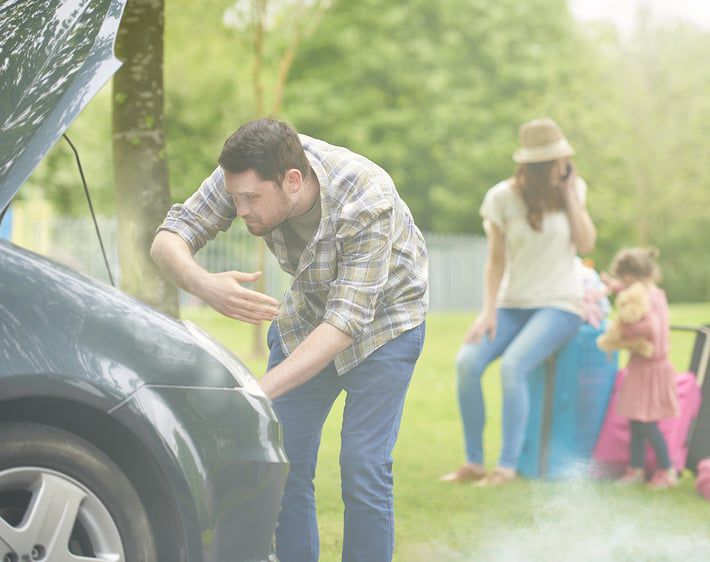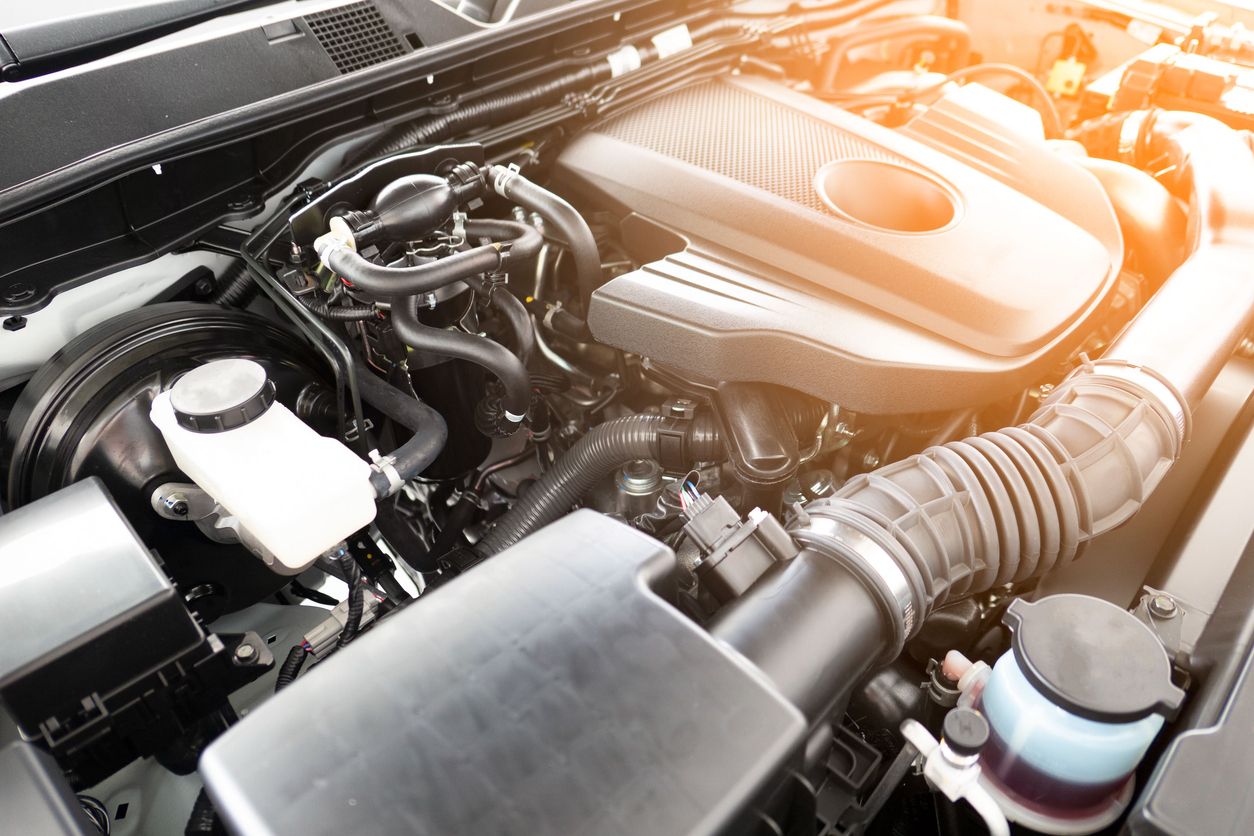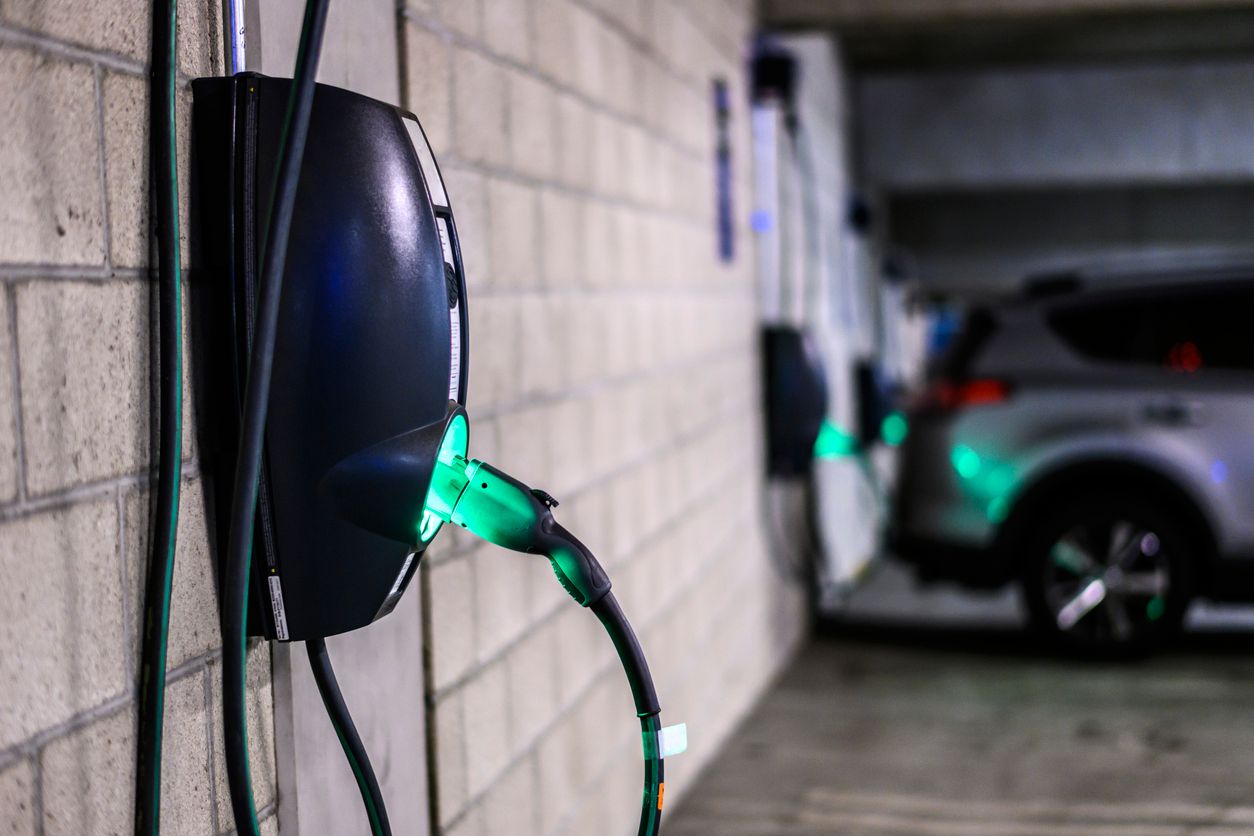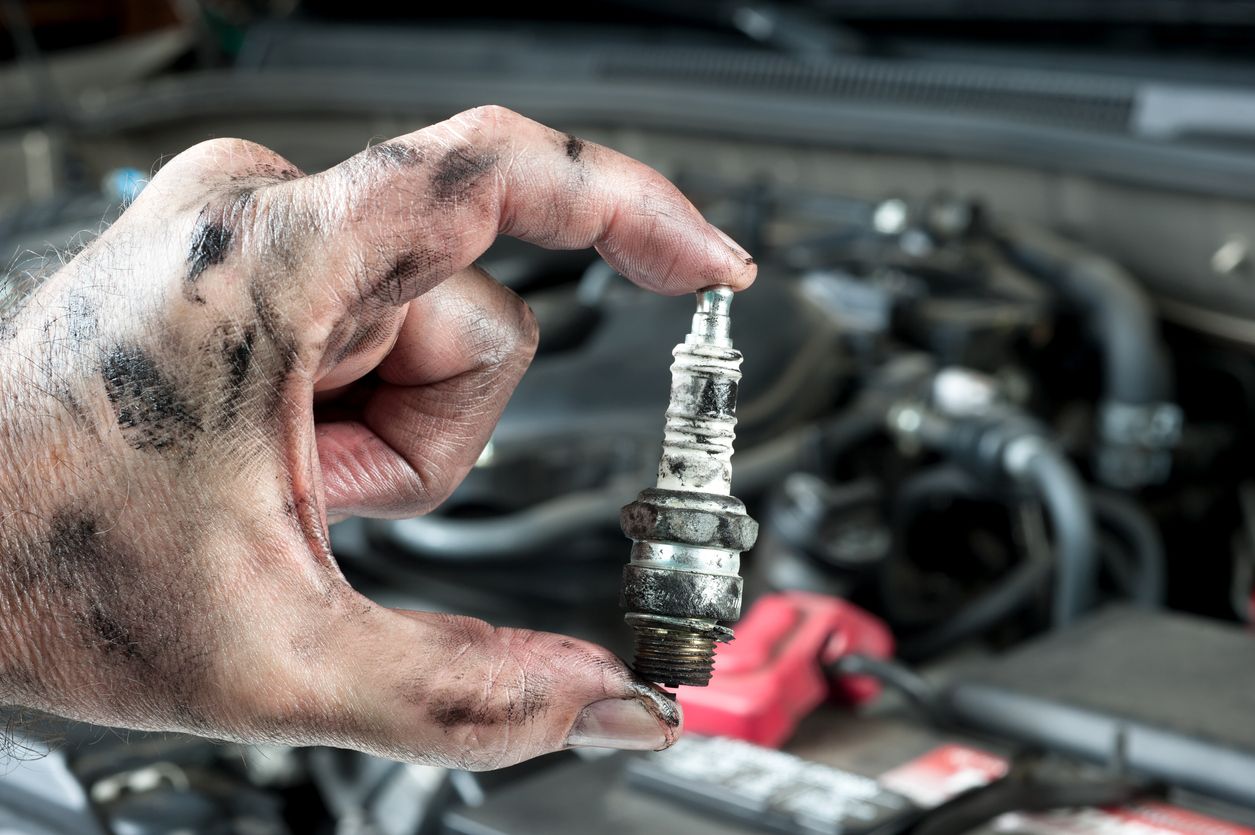A carefree family hops in the car, excited for a weekend at the beach. After a few hours on the road, disaster strikes. The engine starts smoking, and the family has to pull over. What will happen next?!
Seems like no summer horror movie is complete without this iconic scene, but it’s certainly not something you want to reenact on your next road trip! Make sure you’re prepared if disaster strikes and learn what to do (and not do!) when your car engine overheats.
WHY DO ENGINES OVERHEAT? A LIST OF POSSIBLE CAUSES
Engines can overheat for many reasons. In general, it's because something's wrong within the cooling system and heat isn't able to escape the engine compartment. The source of the issue could include a cooling system leak, bad radiator fan, faulty water pump, low engine oil level, or thermostat failure. Regardless of the problem's source, an overheating engine isn't something you want to let linger. Your engine could sustain serious, if not permanent, damage.
COOLING SYSTEM LEAK
A car’s cooling system is in charge of regulating heat coming from the engine. It does this by circulating coolant through the hot zones around the engine block and cylinder heads and then back to the radiator. When coolant leaks from the system, the temperature of your engine will climb and, eventually, overheat. A coolant leak can come from a faulty hose, worn-out gasket, cracked engine block, and even damage to the radiator. Keeping up with regular inspections and maintenance is the best way to avoid coolant leak issues and damage from an overheated engine.
FAULTY WATER PUMP
Coolant doesn’t circulate all on its own. A car’s coolant system uses a water pump to push coolant around the working engine. So, when the water pump goes kaput, it will disrupt the coolant flow and lead to overheating.
One part to watch out for is a water pump’s impeller, a spinning fan-like component that pushes coolant through the passages of the cooling system. Problems arise when an old or worn-down impeller gets blocked or stops rotating all together. And without the flow of coolant, your engine temperature can skyrocket fast. When a water pump fails in this way, it will need to be replaced.
BAD RADIATOR
When it comes to your vehicle’s cooling system, think of the radiator as the command center. A coolant and water mixture are constantly circulated from the radiator to the engine to absorb excess heat. Then, when the coolant returns to the radiator, it uses a series of fins to cool down and extract heat out of the coolant/water mixture.
How can a radiator go bad? Blocked passages can cut off the flow of coolant, so heat can’t transfer away from the engine. Damaged or bent radiator fins can make it more difficult for the radiator to extract heat from the returning coolant. And finally, a leak in the radiator can drain the system of coolant, which is the lifeblood of your vehicle’s cooling system.
LOW ENGINE OIL LEVEL
Car engines use a lot of moving parts to ignite fuel that gets your vehicle on the move. Engine oil provides essential lubrication to each engine component to reduce heat-generating friction. When engine oil levels are too low, poorly lubricated parts will create more friction and buildup heat. In addition, the engine oil also helps transfer heat away from the engine - just like coolant. Heat stress and even serious engine damage can result from low engine oil levels.
Staying on top of regular engine oil changes is the best way to avoid this problem altogether. Take indicators seriously, like your dashboard oil light, and get your car to a technician as soon as possible if you think your engine oil levels are too low. Better safe than sorry!
THERMOSTAT FAILURE
Your vehicle’s cooling system relies on a thermostat near the engine to determine when to send out coolant to regulate the engine’s heat. So, if you have a malfunctioning thermostat, the entire system can be thrown out of balance. If the thermostat fails to detect high temperatures, it will hold up the flow of coolant, and your engine will overheat. On the flip side, if the thermostat has failed and is allowing coolant to flow constantly, your engine will have a hard time getting to operating temperature. The best way to avoid this is with regular cooling system maintenance, including coolant fluid exchanges as per manufacturer recommendations.
SIGNS YOUR ENGINE IS OVERHEATING
If you’re able to take steps to cool your engine before it overheats to the point of failing, you may reduce the risk of irreversible engine damage. But first, you've got to notice the
symptoms of overheating, which can include:
- Steam (which can look like smoke) coming from under the car hood.
- An engine temperature gauge on your dashboard that spikes to "H" or into the red. (Engine temperature gauge symbols vary, so consult your owner's manual.)
- A strange smell coming from the engine area. For example, leaking coolant can smell sweet while leaking oil might smell more burnt.
As soon as you notice the engine overheating, take the following steps and contact your nearest repair shop.
WHAT TO DO WHEN YOUR ENGINE OVERHEATS
1. KILL THE A/C AND CRANK THE HEAT.
Immediately turn off the air conditioner to reduce stress on the engine. Then, turn the dial to maximum heat. This can help pull heat away from the engine to keep it from overheating until you can pull over in a safe location. You may get a little hot yourself, but a few minutes of discomfort is a small price to pay compared to major engine repairs.
2. FIND A SAFE PLACE TO PULL OVER.
Pull over and shut off the car. Allow the engine to cool for at least 15 minutes. Keep an eye on the temperature gauge, as it should move back to a normal range as the engine cools. While you're waiting (and watching the gauge), put together a plan to get your overheated engine checked out. Call a friend, a tow truck, or your local Firestone Roadside Assistance for help. We'll dispatch a trained representative to tow your vehicle to the nearest Firestone Complete Auto Care store or help with step number three.
3. RESTART THE ENGINE.
If your car isn't being towed, now's the time to carefully restart your engine and drive to your nearest auto repair shop. Keep an eye on the temperature gauge as you drive. If it rises again, pull over and let the system cool.
WHAT NOT TO DO WHEN YOUR ENGINE OVERHEATS
1. DON'T PANIC.
Your engine isn’t keeping its cool, but you can! Avoid swerving through traffic or slamming on your brakes when pulling off the road.
2. DON'T KEEP DRIVING.
If your engine is overheating but still running, you're not doing it any favors by staying on the road. Sure, you may be able to get to your destination before it gives out entirely, but you may cause significant (and costly) damage by pushing your engine too far.
3. DON’T OPEN THE HOOD IMMEDIATELY.
Once you've pulled over, wait for the engine to cool before popping the hood to check things out. Opening the hood immediately can put you at risk of burns or injuries from spewing steam or smoke. Patience is key. Wait until the engine temperature gauge settles before opening the hood.
4. DON’T LET THE ISSUE LINGER.
An overheating engine won't resolve on its own, even if it seems to be fixed after you add a little coolant. It will only get worse if left unaddressed. Get to the root of the issue to help save your engine. Bring your car to Firestone Complete Auto Care for a Complete Vehicle Inspection so we can diagnose the problem and make recommendations for solving it.
HOW TO PREVENT AN OVERHEATED CAR ENGINE
Take care of your car, and it’ll take care of you. The best way to prevent an overheating car engine is to have regular inspections and coolant exchanges performed on your car and stay up-to-date with radiator maintenance as recommended by your vehicle manufacturer. Routine inspections can also help you fix any potential radiator or engine issues before they worsen.
This summer, feel the heat at the beach, not on the road. Keep your cool and head to your nearest Firestone Complete Auto Care for the nationally-trusted auto repair advice and service you need.



